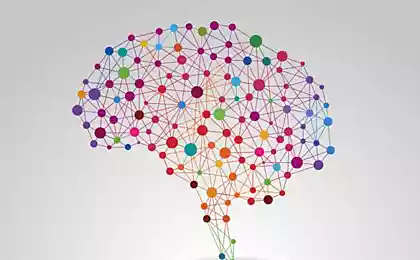1322
Nine types of intelligence

1. Natural Intelligence
Determines a person's ability to feel the animals and plants. This ability was considered a gift in our evolutionary past. Great primitive hunters and gatherers had this gift. Now this type of intelligence continues to play an important role in some sectors, and without him it is impossible to become a professional botanist or agronomist. Modern society has of course little interest in this type because we are increasingly moving away from nature.
2. Musical intelligence
Musical intelligence - the ability to distinguish pitch, rhythm, timbre and tone. This type of intelligence allows us to feel, create, play music. Without it there could composers, conductors, musicians, singers and listeners with sensitive ears. Interestingly, the only musical intelligence + penchant for mathematics can give birth to such people as the drummers. They tend to be very well filtered external sound and have a good and fast count.
3. Logical-mathematical intelligence
Logical-mathematical intelligence helps assume solve complex mathematical and logical problems. Logical intelligence is usually well developed by mathematicians, scientists and detectives. Young people with this type of intelligence is not inclined to communicate, they are usually closed. They are interesting figures, experiments and logical puzzles.
4. Existential intelligence
Intelligence that potentially helps the individual in dealing with deep questions of human existence. For example, these people can come up with new theories about the meaning of life, the possibility of immortality and how people appeared on Earth.
5. Interpersonal intelligence
Interpersonal intelligence - the ability to understand and communicate effectively with others. It includes effective verbal and nonverbal communication, the ability to quickly notice the differences between people. Also, these people have to feel good mood and temperament of others. Teachers, social workers, actors and politicians, by definition, must have this type of intelligence, but ... Young people with developed interpersonal intelligence often become leaders among their peers, not because they are stronger, but because it is interesting to communicate with them, and it seems that they understand the feelings of each.
6. Bodily-kinesthetic intelligence
Bodily-kinesthetic intelligence - the ability to manipulate physical objects and use a variety of physiological skills. Such people are well oriented in time and space. Athletes, dancers, surgeons should have a well-developed body-kinesthetic intelligence.
7. Linguistic intelligence
Linguistic intelligence - is the ability to think clearly and to interpret their thoughts, even the most complex in the clear for all words. Linguistic intelligence is important for poets, writers, journalists and public figures. Young people with intelligence love to write, read, tell stories, and crossword puzzles.
8. Personal intelligence
Personal intelligence - the ability to understand themselves as well as their thoughts and feelings, and to use this knowledge in the planning process of life. This type of intelligence allows a person to sensibly assess their capabilities and well-planned expenditure. Obviously, such people are good psychologists. But it is these people can be very shy.
9. Spatial intelligence
Spatial intelligence - the ability to think in three dimensions. Such people are well aware of the place, mind can imagine what awaits them around the corner. They are easily remembered picture is a picture of the place, which they are asked, or of which they remember at the moment. Sailors, pilots, sculptors, painters and architects - media development of spatial intelligence. People with intelligence like mazes and puzzles. They can sit for hours for a picture.























